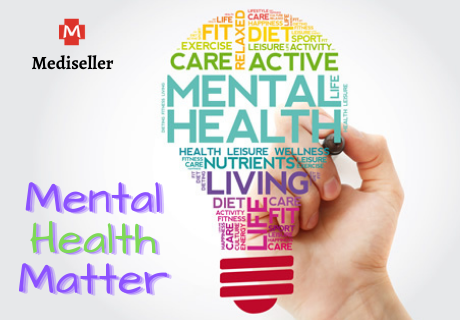The initial periods of the pandemic adapting to the restrictions and lifestyle changes pushed all of us to our edges. Online classes, work from homes, unemployment, or family issues have worsened our mental health further.
We were still hopeful, thinking that things would soon return to normal. Yet here we are a year later.
The Covid-19 Pandemic has been haunting us for over a year now. In this time we have lost our loved ones or seen our friends lose their loved ones to COVID. There is nothing easy about our situation right now.
For people with pre-existing medical health issues now can be particularly difficult. Fortunately, there are things we can do to keep ourselves mentally healthy and support others who need it.
Coping with stress
The challenges we face today are emotionally stressful and overwhelming. Staying at home, social distancing, and other precautions made us feel isolated and lonely, increasing stress and anxiety.
Coping with stress is therefore essential to being resilient and helping others around you. Here are some ways to help you manage stress and be resilient.
A healthy body equals a healthy mind
Stress and a healthy diet are linked together. When we are stressed we tend to stress eat, usually sugary high-calorie junk food. So prepare in advance and plan healthy meals that consist of veggies, fruits, lean protein, and other macronutrients.
Physical activity releases endorphins, better known as happy hormones, which can boost your mood. Regular exercise is also linked to improved immunity and lower risks of many diseases. By exercise, you don’t necessarily have to hit the gym and bench 300lbs. Even moderate exercises that get your blood flowing and warm up your body can release endorphins.
Stress might cause sleep loss, sad to say but lack of sleep is a contributing factor to stress. This cycle only gets worse with time. So be sure to get adequate sleep. If you have trouble sleeping, your doctor may recommend sleeping pills or other methods.
Practicing mindfulness techniques like Yoga, Pilate,s or Tai Chi can also help improve your mental health.
Take a break from the world around you
Try to reduce reading, hearing, or watching the news that might make you anxious or stressed. To be aware, check the news once a day if required.
News stories are not limited to TV, newspapers, or websites, even social media actively shares news. So limit your social media usage as well. Staying informed is good, but constantly hearing disturbing news can be counterproductive.
Apart from news, social media may also display clips from places where the restrictions have been reduced or pre-pandemic clips, which might upset you.
Unwind
Find time to do stuff that you love. Amidst working from home or online lectures, finding time might be difficult. But doing activities you enjoy is vital to stay mentally healthy.
So go play that video game you love, read your favorite novel, watch a movie, or record some music if you enjoy singing.
Listening to relaxing music has a positive effect on your body, lowering blood pressure and cortisol levels. We recommend listening to Weightless by Marconi Union.
Watching a stand-up comedy or any other source of humor can also help beat stress.
Connect with tech
Technological giants have been working day-in-day-out to improve user experience. Video calling services like Zoom or Google Duo are excellent ways to connect to your loved ones.
Have movie nights or game nights with the help of technology. Many OTT services offer watch parties that essentially allow you to enjoy movies or your favorite shows with your loved ones.
Make the most out of these services to reduce feelings of isolation or loneliness.
Bottom Line
Managing your mental health is crucial to your overall health and wellbeing. The pandemic is putting our abilities and brains to the test with new challenges with each passing day.
With the vaccines rolling out, hopes of returning to the normal are high. We will come through stronger than before.



.png)
.png)
.png)
.png)
.png)
.png)
.png)
.png)


0 Comment